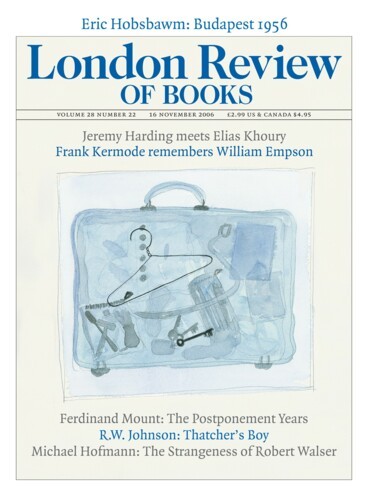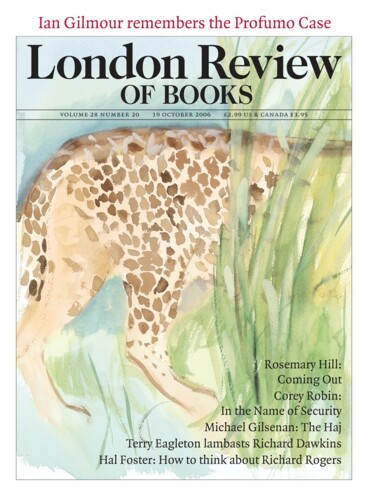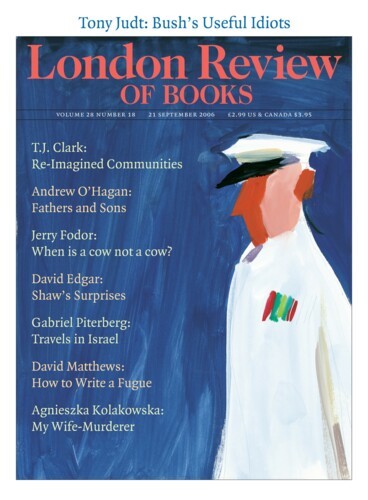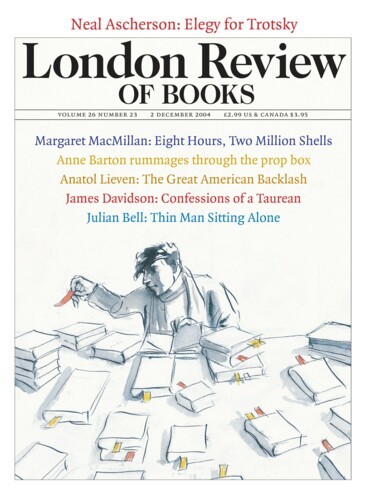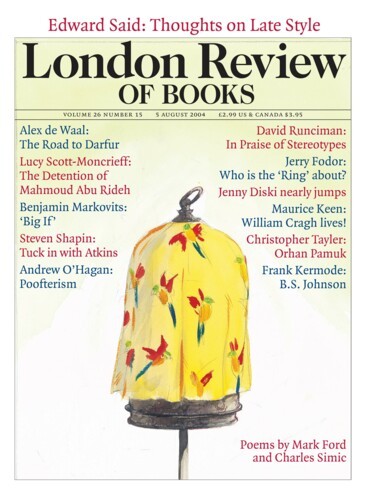Erasures: Donald Justice
Mark Ford, 16 November 2006
Donald Justice, who died in August 2004 at the age of 78, was one of the most subtle and enchanting American poets of his generation. In ‘Variations on a text by Vallejo’, a poem anticipating his own demise, but written some three decades before it, he pictured gravediggers burying him in Miami (his home town):
And one of them put his blade into the earth To lift a few clods of...
